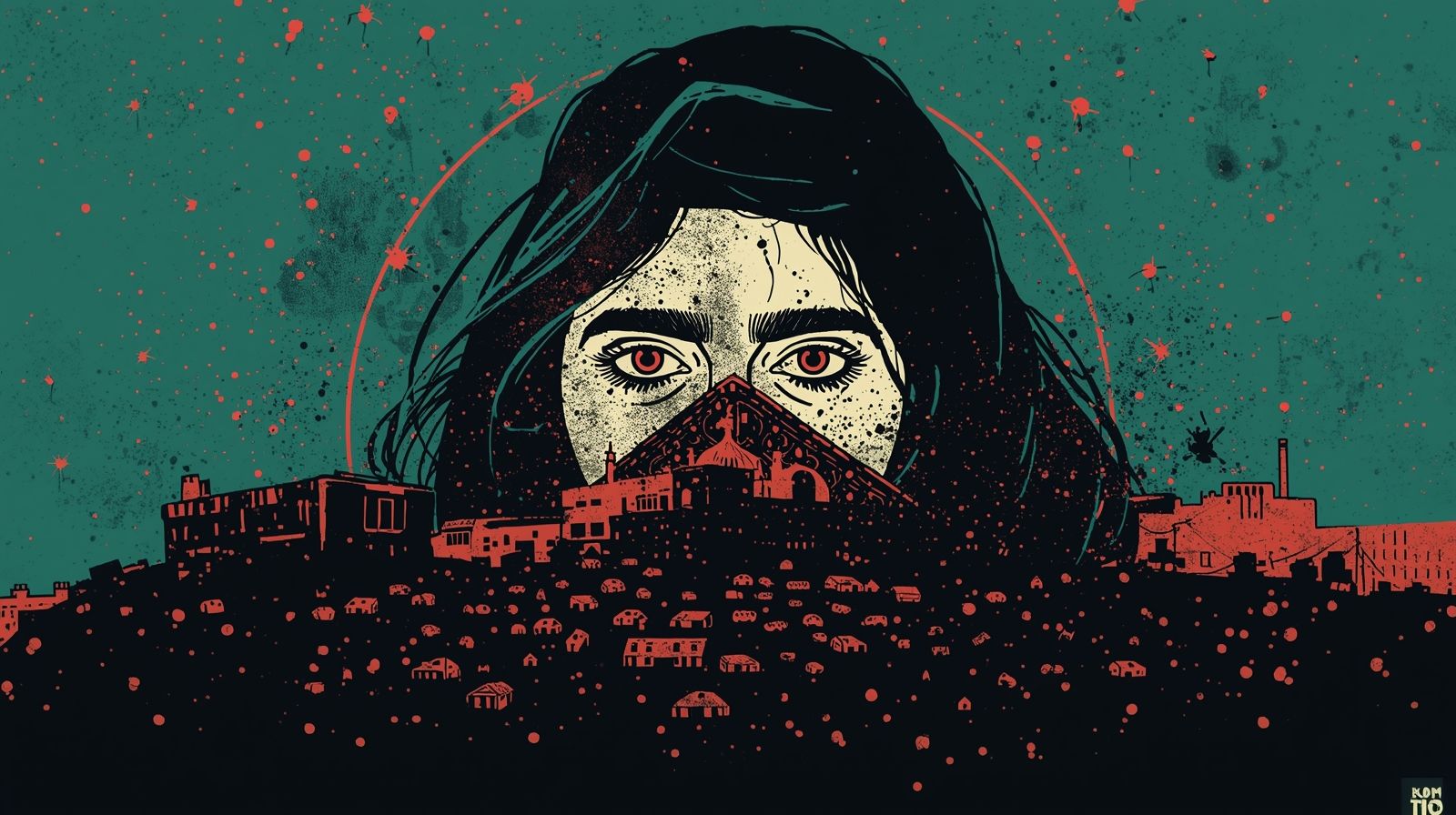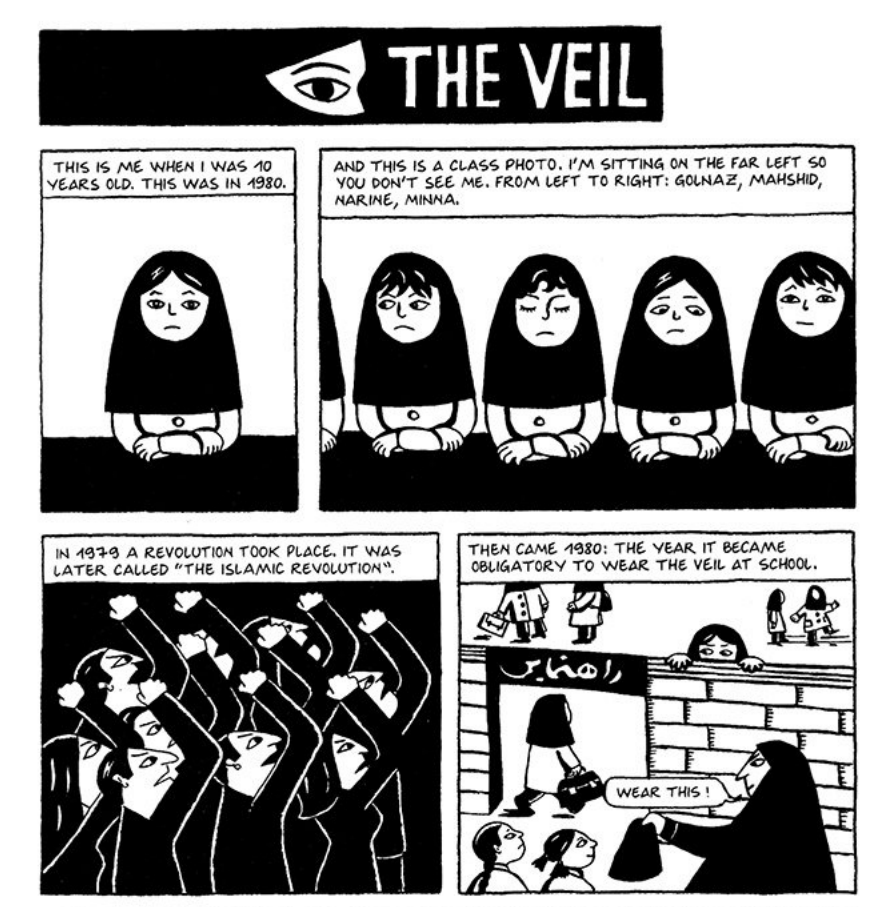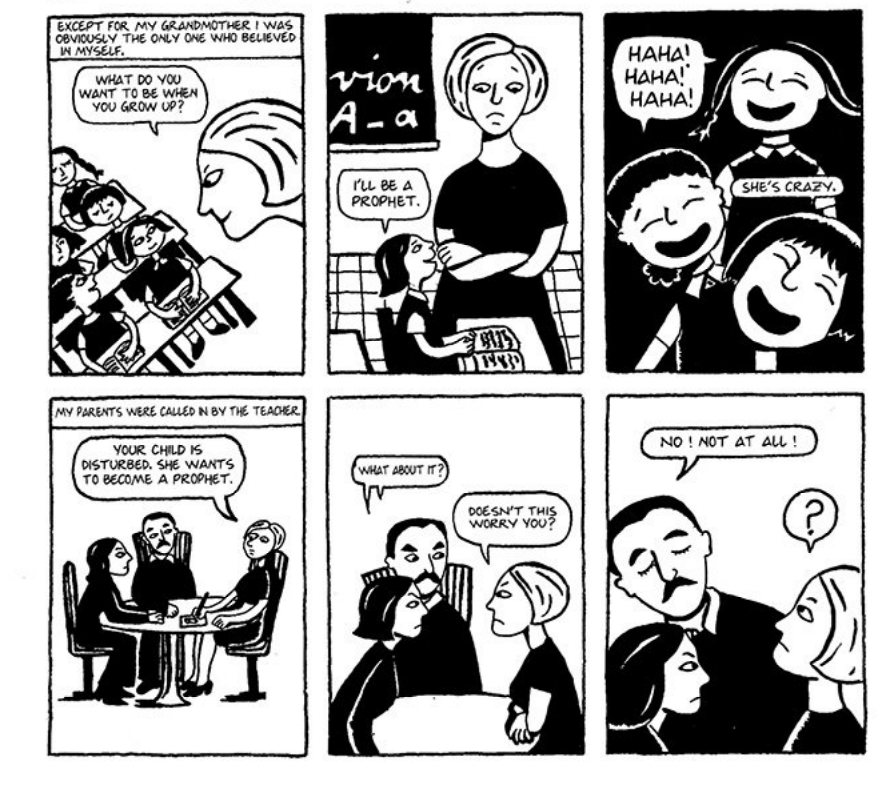Persepolis
During the week, my younger daughter got a cross word puzzle assignment from school where the content is banned books. Parents were asked to help them a little bit with the cross word puzzle and then discussed with them about one or two of the books that was featured there. One such book was Marjane Satrapi's Persopolis. The book is a graphic novel and autobiography of Marjane's childhood in Tehran, Iran during the cultural revolution. If you haven't read the book, I highly recommend it, as there are not many graphic novels out there like this one. I have read this one in the past. In fact it was assigned reading for my older daughter in grade five, if I remember correctly, so we have the book at home. I am glad that we did, I just read it again!

Image created by Leonardo


Published in 2003, the book details Satrapi’s early years in Tehran, spanning the final years of the Shah’s reign, the triumph of the Islamic Revolution, and the devastating beginning of the Iran-Iraq War. By choosing the simple, stark medium of the graphic novel—a choice that was revolutionary for such heavy subject matter—Satrapi successfully personalizes an enormous political upheaval, making the history of modern Iran accessible, empathetic, and immediate to a global audience.
The power of Persepolis rests heavily on its visual simplicity. Drawn in bold black and white, the style is intentionally minimalist, eschewing detailed backgrounds or complex shading. The narrative is filtered entirely through the eyes of Marji, the author’s younger self, transforming historical chronology into a compelling coming of age story in a backdrop of a turbulent time. Yes, she wants to be a prophet! And yes, her parents are not concerned. No, they are not really fundamentalist and highly educated political activist. If their daughter wants to be a sunshine when she grows up, so be it!
I want to share her forewords as is. There are very few introductions that resonated with me as much as this paragraph.
In 1951, Mohammed Mossadeq, then prime minister of Iran, nationalized the oil industry. In retaliation, Great Britain organized an embargo on all exports of oil from Iran. In 1953, the CIA, with the help of British intelligence, organized a coup against him. Mossadeq was overthrown and the Shah, who had earlier escaped from the country, returned to power. The Shah stayed on the throne until 1979, when he fled Iran to escape the Islamic revolution. Since then, this old and great civilization has been discussed mostly in connection with fundamentalism, fanaticism, and terrorism. As an Iranian who has lived more than half of my life in Iran, I know that this image is far from the truth. This is why writing Persepolis was so important to me. I believe that an entire nation should not be judged by the wrongdoings of a few extremists. I also don't want those Iranians who lost their lives in prisons defending freedom, who died in the war against Iraq, who suffered under various repressive regimes, or who were forced to leave their families and flee their homeland to be forgotten. One can forgive but one should never forget.
Our Present World View
I am going to argue that our modern world view is dominantly formulated by western media. Both digital and conventional media now distribute the world as Good Guys and Bad Guys. What people often forget that is not really the world view. In fact, not only western media can't comprehend the complex global relationship between cultures that are shared over thousands of years; but they are purposefully deny us the subtlety of certain element doesn't fit their narrative.
I was discussing this with my daughter, who asked me, aren't Iran a fundamentalist country?
Well their present government's popular faction probably is today, yet, that is not the way to judge a land and its people who has ten thousand years of history behind them. In fact the modern relationship is so recent that it is almost juvenile. India, where I am from, and Iran shared a history that is 5000 years old, if not more. I was discussing the same with my daughter in relation to Afghanistan as well. Again a relationship that we cherish for 5000 years, Taliban is 1988 and after? That is an afterthought! I was telling my daughter that I always want to visit Babar's Tomb in Kabul. For those who do not know Babar, who was the first Mughal King at Delhi, had phenomenal impact on History of India, and India's foreign relationship to Iran and Central Asia (Babar was a Uzbek, but back them it was part of greater Persia).
My point in all this is the fact that history is complex and long standing. Some of the relationships between countries are long lasting. Just a media outlet or current western view of the 'civilization' of the world is biased and incomplete (possibly on purpose). It is our duty to our children to share the true history and international relationship between different parts of the world.
Getting back to the book: I think, Satrapi uses her own family—intellectual, politically active, and progressive—as a vital anchor for the memoir. They provide Marji with a complex moral compass that often clashes with the new state ideology. Her grandmother’s wisdom, her parents’ courage, and the tales of martyred family members like her uncle Anoosh instill in her an unshakeable sense of justice and history. Ultimately, Persepolis succeeds as a vital piece of literature because it refuses to reduce a nation’s complex history to a simple political thesis. That is the main point I tried to make with my daughter. Just because in present day, Iran, Iraq or Afghanistan are war torn challenging places, doesn't mean you can just simply label them as a fundamentalist terrorist state. These are very old civilizations and much more advanced in history and culture than any western countries.

